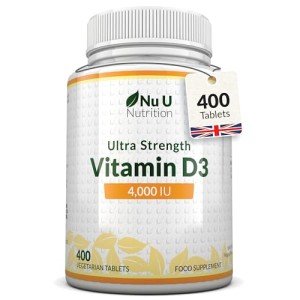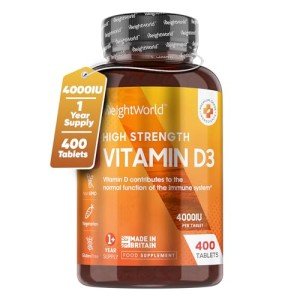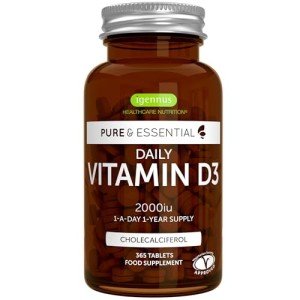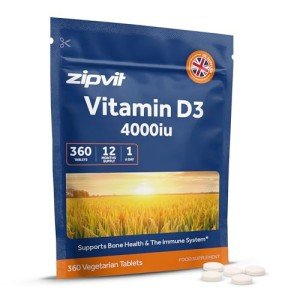Choosing the right supplements can feel a bit overwhelming, but it doesn’t have to be. Start by thinking about your daily diet and any gaps that might need filling. Are you getting enough vitamins, minerals, or protein from what you eat? A quick look at your eating habits can help you pinpoint where supplements might help.
Next, consider your specific health goals. Are you aiming for stronger bones, more energy, or better immunity? Different supplements cater to different needs. For example, if you're active, protein powders might be your best friend. But if you’re looking to boost your vitamin D levels, a simple vitamin D3 supplement could work wonders.
It’s also important to think about quality. Look for brands that are transparent about their ingredients and have third-party testing. This ensures you’re getting what’s on the label without any unwanted surprises. Don’t hesitate to read reviews or ask for recommendations from friends or trusted sources.
Lastly, talk to your healthcare provider before diving in. They can provide valuable insights based on your health history and current medications. This way, you can choose supplements that truly align with your needs and lifestyle, making your journey towards better health smoother and safer.
Types of Dietary Supplements Explained
When it comes to dietary supplements, there's a whole world of options out there! Let’s break down some of the most common types and what they can do for you.
Vitamins: These are essential nutrients that your body needs to function properly. They come in many forms, like vitamin C for immune support and vitamin D for bone health. If your diet lacks certain vitamins, a supplement might help fill those gaps.
Minerals: Just like vitamins, minerals are crucial for various bodily functions. Calcium is great for your bones, while magnesium can help with muscle function and sleep. If you’re not getting enough minerals from your meals, a good supplement can help keep you balanced.
Herbal Supplements: These are made from plants and are often used for specific health benefits. For instance, turmeric is popular for its anti-inflammatory properties, and ashwagandha is known for its stress-relief benefits. Just remember to choose high-quality products and check for any potential interactions with other medications.
Amino Acids: These are the building blocks of protein, and they play a big role in muscle recovery and overall health. Whether you're into fitness or just need a little extra nutritional support, amino acid supplements can be a great addition to your routine.
How to Read Supplement Labels
Reading supplement labels can feel a bit overwhelming at first, but once you know what to look for, it gets much easier! Start by checking out the serving size at the top. This tells you how much of the supplement you need to take to get the benefits. Make sure to pay attention to how many servings are in the container too.
Next up is the list of ingredients. This is where you'll want to spot the active ingredients, which are the ones that provide health benefits. Don’t forget to look for any fillers or additives, especially if you’re sensitive to certain ingredients. If you're unsure about any specific ingredient, a quick online search can help clarify its purpose.
Another important section is the % Daily Value (%DV). This shows you how much of a nutrient is in one serving compared to the daily recommended amount. If the %DV is high (20% or more), it means you're getting a lot of that nutrient in your diet. If it’s low (5% or less), it might not be significant enough to impact your health.
Finally, check for any certifications, like whether the supplement is non-GMO or gluten-free. These can be really important if you have dietary restrictions. Remember, not all supplements are created equal, so always choose reputable brands, do your research, and if possible, consult with a healthcare provider before adding new supplements to your routine!
Tips for Safe Supplement Use
When it comes to taking dietary supplements, safety should always be a top priority. Here are some tips to ensure you’re getting the most out of your supplements without any unwanted surprises.
1. Do Your Research: Before you buy a supplement, take some time to read up on it. Check out reviews, talk to friends, or consult a healthcare provider. Knowing what the ingredients are and what they do can make a big difference in your experience.
2. Start Slow: If you're trying a new supplement, consider starting with a lower dose. This way, you can see how your body reacts before committing to the full dosage. It’s all about finding what works best for you!
3. Stick to Trusted Brands: Not all supplements are created equal. Look for brands that are transparent about their ingredients and have third-party testing. This ensures you’re getting a quality product that's safe to use.
4. Consult Your Doctor: If you’re on any medications or have existing health conditions, it’s especially important to check in with your healthcare provider. They can help you avoid any potential interactions and guide you on what supplements may be right for you.






